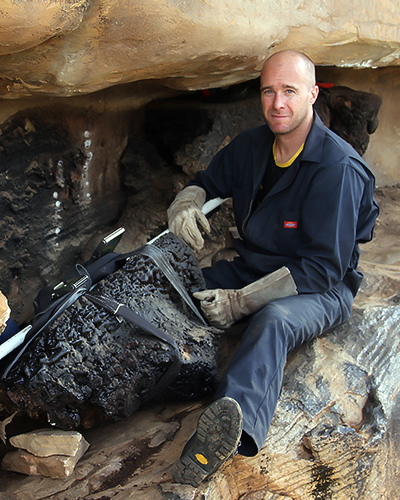
Academic Profile
Brian Chase is a palaeoclimatologist who has worked closely with the University of Cape Town and the Department of Environmental & Geographical Science since 2003. Brian obtained degrees in geography in the United States (BA, Portland State University; MA, Prescott College) before moving to the UK for an MSc in environmental archaeology and palaeoeconomy (Sheffield) and a DPhil in physical geography (Oxford).
First coming to UCT as part of his DPhil – using OSL techniques to assess the age of the dunefields along South Africa’s west coast – Brian spent many years living in Cape Town for his graduate studies and postdoctoral research, working in the palaeoecology and geomorphology labs and co-supervising graduate students.
Brian currently lives in Montpellier, France, where he is a Director of Research with the Centre National de la Recherche Scientifique (CNRS), based at the Institut des Sciences de l'Evolution-Montpellier, Université de Montpellier. Brian is also a Vice-President of the International Union for Quaternary Research (INQUA) and the Director of AFQUA; The African Quaternary – Environments, Ecology and Humans, as well as being on the editorial boards of Quaternary International and Quaternary Science Advances.
Research Interests
As a geographer, Brian’s research is wide ranging, but primarily focuses on the study of past environmental change in the arid to sub-humid environments of southern Africa. While this region is highly sensitive to cycles of regional and global environmental change, and thus has the potential to be a valuable indicator of past climatic variability, only a very few palaeoenvironmental archives have been recovered from the area, and its environmental history remains poorly understood. As a result, models that have been developed to elucidate the dynamics of regional ecosystems, and the environmental context for human and cultural evolution are often contentious, lacking sufficient evidence to make robust interpretations. This paucity of palaeoenvironmental information is largely a function of the region’s climate that often precludes the preservation of organic proxy data sources. Brian’s research concentrates on overcoming these obstacles by identifying and analyzing proxy archives that have either not experienced or are resistant to the effects of the region’s pronounced seasonality.
He is presently exploring several research themes:
- The development of fossilised rock hyrax middens as new palaeoenvironmental archive.
- Studies of sediment cores from coastal wetlands in South Africa.
- The development of pdf-based botanical-climatological transfer functions to derive quantitative estimates of palaeoclimatic parameters from palaeobotanical datasets.
- Statistical methods for time -series and spatial analyses that improve the reliability and interpretations of individual records, and the combination and comparison of records.
- Methods for data-model comparison that maximise the potential to infer the dynamical processes responsible for the environmental processes observed in the fossil record.
- The assessment of the impact of past climate change on the development of the Cape Floristic Region.
- The assessment of the impact of past environmental change on the development of early modern humans.
All of Brian’s publications are listed on his Google Scholar profile:
https://scholar.google.com/citations?user=CnGmVGcAAAAJ&hl=en